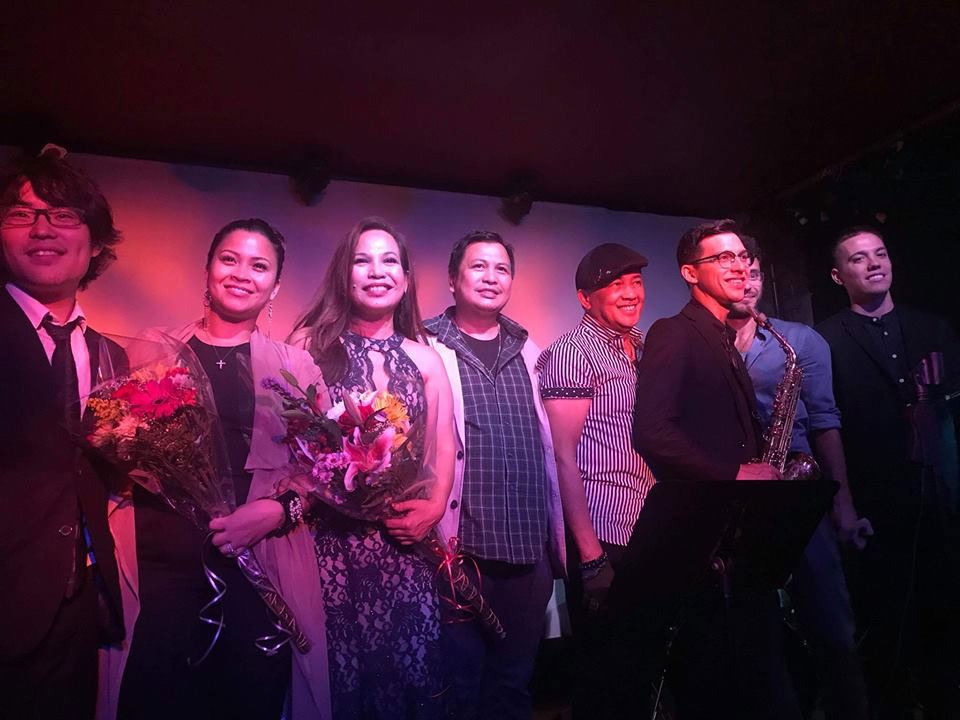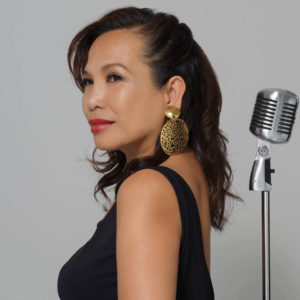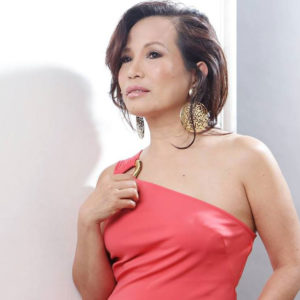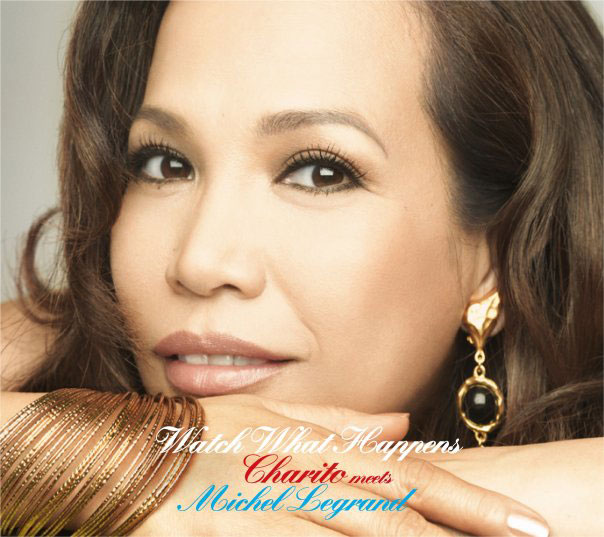Poets have evocatively written that music gives soul to the universe, wings to the mind, flight to the imagination, and life to almost everything. Aside from being deliberately considered the international language of humans, music (like silence) speaks louder than words especially when words failed to copiously express what the mind and the heart wish to convey.

Music is aptly equipped with limitless possibilities of expression. According to Austrian classical composer Wolfgang Amadeus Mozart (christened Johannes Chrysostomus Wolfgangus Theophilus Mozart): “Music is not in the notes but in the deafening silence between…!” while American-Russian writer of fantasy science fiction Vera Nazarian was quoted saying “If music is a place, then jazz is the city, folk is the wilderness, rock is the rough road, classical is the temple, and ballad is the meadow.”

In the several genres of music, it’s quite noticeable that jazz has a limited audience and a paucity of exposure although it’s considered by many as “America’s classical music”. As a major form of musical expression, jazz actually traces its roots from the African-American communities in New Orleans during the late 19th century as characterized by swing and blues, polyrhythms, and improvisations.
Records show that jazz was born in 1895 when Buddy Bolden started his first band but others believed that it was in 1917 when Nick LaRocca and his original Dixieland Jazz Band recorded the first jazz record “Livery Stable Blues”, although American Jazz aficionados applied jazz music in Chicago around 1915 as attested by Fred R. Shapiro, editor of Yale Book of Quotations.
The definitively old-but-slow-developing permutation of this music genre that was developed from the roots of blues and ragtime hasn’t actually lost its magic spell but noticeably sluggish in progression. There seems to have a thin list of jazz artists who could fit into the shoes of Julie London, Peggy Lee, Frank Sinatra, Ella Fitzgerald, Nat “King” Cole, Billie Holiday, Sarah Vaughan, Astrud Gilberto, Bessie Smith, and others who, with their smoldering sensual vocals and vibrantly poignant emotional and soulful renditions, had established their reputable marks in the annals of music history.
But one Filipina has astoundingly defied the traditional determination in leaning towards music. While ballad, pop, or rock were the top choices of majority of aspiring singers, Rosario “Charito” Vergara, third offspring among six children of Alberto and Rosita, easily opted for jazz music. “I don’t know but jazz has some sort of enigma and “magnetic charge” that hit me whenever I listen to it…much more, when I sing it,” the down-to-earth Japan-based Jazz exponent openly uttered with a wink as she gently shrugged her shoulder.

Charito is unquestionably a born singer. At barely five years old, she had already memorized (just repetitively listening over the radio) and performed “Pandangguhan,” a Tagalog classic song and learned her first ever English ditty, “High Noon,” a Tex Ritter’s 1952 Academy Best Original Song.
Her remarkable musical journey commenced way back during high school when she was designated front-runner and conductor of her school’s Glee Club and jazz mass… but wonder not for her mom was a soprano and her dad was a karaoke enthusiast.
Ambitious? Yes, she was! And who wasn’t?
Everyone is motivated by ambition and driven by inevitable necessity. Charito enrolled at the University of Santo Tomas for a Mass Communication degree but the then President Ferdinand E. Marcos’ signing of Proclamation 1081 that placed the entire country under Martial Law (September 21, 1972) sternly affected her studies and put her schooling to a halt.
“My family was forced to go back to La Union to co-manage the family-owned tobacco plantation but life in the far-flung mountain range wasn’t for me. There was that passion within that incessantly kept me perturbed and urged me to pursue my dream,” Charito spoke in monotone as she recalled that fateful past.
Then like an answered prayer, a distant uncle (who was a guitarist in a band) convinced her to try out in Manila for a singing engagement…and to the concrete jungle she went, donned in her sister’s “sagala” gown (long dress worn during a religious precession re-enacting Queen Helena’s search for the missing cross of Jesus) …and luckily got a nightly gig at Hyatt’s Kalesa Bar.

Although barely eighteen, Charito was already focused with unflinching dedication to succeed and for it to be more than just a nightly singing engagement. Aptly armed with her two mastered pieces, “Cabaret” and “People,” she dauntlessly faced an audition for Japan and got the job at a music club in Sendai City.
For five solid years, Scotch Bank was her workplace as the club’s jazz band’s soloist… where she was actually trained as a jazz singer. “I came to totally embrace jazz. From cool to faster tempos and glottal improvisation until the calmer, smoother sounds and long linear melodic lines came out so naturally. I was able to master free jazz…singing it without regular meter, beat and formal structures…as if I was merely playing along with the music and the band,” she expressed spontaneously with that distinct raspy voice.
“I actually knew what I wanted in life,” Charito declared with a brief pause. “Five years in Sendai was good enough for me and I needed a change…a change for the betterment of my career!”
From Japan’s Tohoku Region, Charito went to Tokyo, the Rising Sun’s busy capital, to go a step higher. Being the country’s most populated business center Charito believed her chances of being a big jazz star would be huge. In the bustling metropolis where she met a record producer who invested in her first studio recording, Charito felt the doors of opportunity were generously opened for her big breaks.
Studio recordings came one after another until such time when she consistently hogged the news and was under the limelight of Tokyo’s music scene. “I felt I was on top of my league with the paramount blessings that came my way,” she shared.
Her highly personal and expressive vocal style incorporates the breadth of her musical interests, from straight-ahead soulful ballads to hard-swinging grooves and improvisational adventures. Charito’s approach to jazz music is fresh and invigorating, paying tribute to the jazz tradition while interacting and exploring, constantly seeking to express herself while encapsulated by jazz spell.
As a prominent jazz vocalist in Japan with internationally released multi-awarded albums, Charito’s artistry continues to establish its global prominence with her recent and forthcoming tours in Europe, Asia, North and Latin America.
Currently armed with eighteen CDs, a roster of awards and recognitions, and numerous live stage performances, the Filipino jazz recording artist who found her niche and stamped her indelible mark overseas has found a way to give back for all the blessings she was accorded.
Charito’s munificent heart has ably steered her to establish Tokyo-Manila Jazz & Arts Festival, in coordination with The Philippine Embassy in Japan, and Because We Care Group, which focuses on the cultural exchange and artistic communication between Japan and the Philippines. Primarily aimed for the cultivation of young talented artists who will be given the opportunity to take part in the mainstream performances with professional musicians and artists, a big part of its goal is to create music scholarship funds, provide equipment, and educational support to deserving potential talents.
“I still believe jazz has a promising market. Jazz has no age…but I’m no longer young. So I might as well double my efforts in the propagation of this genre, which I’m confident to last far beyond the years after I’m gone. I have to have jazz music as a legacy,” the jazz diva lamented.
Just recently at “Don’t Tell Mama,” one of New York City’s most popular cabarets and bars, Charito flew in all the way from Japan for her one-night performance with east coast fast rising recording artist Angel Ram in a full hour of Jazz music suitably entitled “Jazz Me, Charito.” Rendering full musical accompaniment were ace sax player-musical director Adam Hutcheson, pianist par excellence Takaaki Otomo, accomplished drummer Nolan Byrd, and bass virtuoso James Robbins from the production of VYNZ-NY Entertainment, LLC.
As if that sensational performance wasn’t sufficient to herald her supremacy in the field, another standing-room-only performance was slated the following night at Kitano Hotel where jazz lovers and her avid followers converged once again to listen and support Charito.
This writer was lucky enough to come face to face with Charito Vergara’s record producer (who also flew in just for the two-night shows) Mr. Taro Sakai, a Tokyo-based soft-spoken businessman and event-planner. Charito and Mr. Sakai had been working together for eighteen years when the latter was in search of a singer to produce under his CT Music label. Although not a jazz enthusiast, Mr. Sakai knows Charito is one of the best jazz recording artist-performers in the whole of Japan but he added, “In Japan, foreign artists have a hard time being on top.”
For comments and suggestions, please email to: [email protected].





